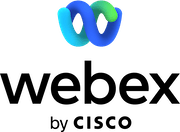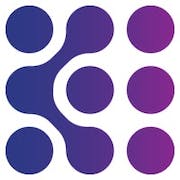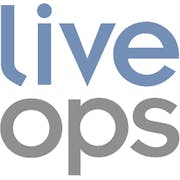Looking for the perfect contact center software? Our comprehensive buyers guide covers everything you need to know to make an informed decision. Compare top options, features, pricing and more. Get started now.
In today's day and age, it's no longer enough to simply connect with your customers on a personal level; you need to do it quickly, efficiently and through the right traditional and digital channels. This is where contact center software comes in. It provides a unified system for all customer interactions and allows you to analyze data, automate tasks and streamline operations.
For businesses looking to improve their customer service and overall operations, contact center software is no longer an option; it's a necessity. But with so many options available, it can be difficult to determine which solution is right for your specific needs. In this guide, we'll explore the key features and benefits of leading contact center software solutions to help you make an informed purchase decision.
What is contact center software?
Contact center software is a communication solution that enables businesses to manage and handle customer interaction. It combines various communication channels, including phone, email, chat, social media and messaging, into one platform, making it easier for businesses to manage customer communication and provide exceptional service. This software streamlines the process, allowing businesses to optimize their service efforts and focus on driving growth.
Here are the common use cases of contact center software:
- Customer service: Contact center software is mainly used by customer service teams as it enables businesses to provide omnichannel support to their customers. It allows shoppers to reach the organization through their preferred communication channels, and all the communication is tracked in one place, making it easier for agents to maintain a record of the customer journey.
- Sales: The software can also be used for sales purposes by enabling the sales team to handle incoming leads or initiate outbound calls and emails through the same platform.
- Marketing: Contact center software can also be used for marketing purposes by creating targeted campaigns to drive lead generation.
- Collections: Many finance and banking organizations use the software to handle collection calls from consumers.
- Technical support: IT companies use the software to provide technical support to their clients.
- Remote work: With the rise of remote work, contact center software has become a popular solution for managing remote teams in various industries.
Businesses of all sizes can benefit from adopting contact center software, but it's most commonly used by organizations that have a high volume of customer interaction, such as:
- eCommerce businesses
- Financial institutions
- Healthcare organizations
- Telecommunications companies
- Retail chains
In conclusion, contact center software is a powerful tool for managing customer communication and enhancing service. It streamlines the process of handling both inbound calls and outbound communications, making it a valuable asset for any organization that is looking to improve customer satisfaction and drive growth.
What are the benefits of adopting contact center software?
As businesses grow, the volume of consumer inquiries tends to increase as well. Time-consuming phone calls and email exchanges can be overwhelming, but businesses cannot afford to lose buyers who seek quick and efficient help. This is where contact center software comes into play.
Here are some benefits of using contact center software:
Streamlined communication
Contact center software centralizes customer communication from various channels such as phone calls, emails, and social media messages, allowing teams to keep track of all communication on a single platform.
Improved customer experience
By providing a seamless channel of communication, businesses can effectively resolve consumer issues and provide personalized experiences and solutions to their problems.
Increased efficiency
Contact center software helps minimize wait time by evenly distributing calls to available agents and providing a detailed call history for each buyer. This allows agents to resolve issues more promptly and with a higher level of accuracy.
Real-time analytics
Advanced contact center solutions, such as cloud-based call center software, offer managers insights and analysis that can be used to monitor agent performance and track customer satisfaction. This real-time reporting can be used to optimize business processes and enhance the customer experience over the long term.
Cost savings
Traditional call centers require significant manual labor to manage. By automating many tedious tasks, contact center software decreases human resource requirements and thus reduces overhead costs over the long run.
Contact center software is a powerful tool that can help businesses of any size foster stronger ties with their shoppers. By implementing a unified communication platform, companies can effectively offer their clients a seamless experience, improve retention, and reap long-term cost savings.
The key features of contact center software
Contact center software is a critical tool that helps companies manage interactions with their buyers, from phone calls to social media messaging. It’s important to understand the key features of this software to determine which one is right for your organization. Below are the top 10 common features found in contact center software:
-
Multi-channel support
This feature allows customers to contact businesses through various channels, including email, phone, social media, and live chat. This feature ensures that buyers can reach out using their preferred communication method.
-
Automatic call distribution (ACD)
This is a key feature of contact center software, as it directly impacts customer experience and agent productivity. This advanced feature intelligently routes incoming calls to the most suitable agent, ensuring that customers receive prompt and efficient assistance. Moreover, when integrated into a cloud-based solution, ACD enables contact centers to scale operations seamlessly by connecting agents across various locations.
-
Interactive voice response (IVR)
This feature allows shoppers to navigate through a menu of options to reach the appropriate department or contact center agent. This feature speeds up the connection process and helps reduce wait times.
-
Call recording and monitoring
Contact center software records all calls, which can be used for training purposes and quality assurance. Supervisors can monitor agent performance, measure customer satisfaction, and identify areas for improvement.
-
Analytics and reporting
This feature provides detailed reports and analytics to help businesses understand performance, identify trends, and make data-driven decisions. This data can be used to improve communication and customer satisfaction.
-
Screen pop
This feature gives contact center agents access to relevant consumer data and history when a call comes in, allowing them to provide personalized customer experiences and resolve issues more efficiently.
-
CRM integration
Integrating contact center software with a customer relationship management (CRM) system ensures that agents have access to customer information, interaction history, and other data. This information can help agents personalize interactions and quickly resolve issues.
-
Virtual assistance
This feature can transfer simple consumer inquiries to a chatbot or virtual assistant, freeing up agents to handle more complex issues. Virtual assistants can also provide basic information and assistance outside of business hours.
-
Workforce management
This feature allows businesses to manage agents' schedules, track breaks and lunch hours, forecast volume to adjust staffing levels, and optimize call handling times.
-
Outbound dialer
This feature enables outbound calling, allowing businesses to reach out to consumers for sales, marketing, or support purposes. This feature also helps agents keep in touch with buyers and maintain a strong relationship
-
Telephony integration
Telephony integration is a crucial aspect of contact center software, as it streamlines communication and enhances customer service efficiency. This advanced feature allows agents to handle multiple customer interactions through a single platform, reducing the need for multiple systems and minimizing the risk of errors. It also enables seamless collaboration between various departments, ensuring that customer inquiries are effectively addressed and resolved in a timely manner.
In conclusion, contact center Software is a critical tool that enables businesses to manage customer interactions effectively and efficiently. Understanding the common features and their benefits can help organizations make the right choice when selecting a contact center Software solution.
What should you consider when assessing contact center software solutions
As businesses aim to provide top-notch customer experience, they must consider investing in reliable and efficient contact center software. Choosing the right software solution can help streamline operations, reduce costs and increase customer satisfaction. But what factors should businesses consider when purchasing contact center software?
- Scalability: As the business grows, so should the contact center software. Investing in a solution that is scalable will ensure the business can add new agents, expand operations, and manage an increasing number of customer interactions.
- Integration: Businesses should consider a software solution that can easily integrate with other systems such as CRM, ticketing, and billing systems. This feature can help streamline operations, improve productivity, and offer a comprehensive view of the customer journey.
- Customer analytics: A robust and data-driven solution can help businesses better understand buyer pain points, expectations and preferences. This feature helps tailor interactions and improve customer experience.
- Omnichannel capabilities: Businesses should aim to provide a seamless and consistent customer experience across all channels. A contact center software with omnichannel capabilities can help connect with customers on various channels such as phone, email, social media, live chat, or messaging platforms.
- Ease of use: The software should be user-friendly and easy to use. This feature can help reduce training time, minimize errors, and improve overall productivity.
- Security and compliance: Businesses must ensure that the software solution is secure and compliant with data privacy regulations such as GDPR and CCPA. A secure solution can help protect sensitive data and customer information.
- Customer support: Finally, businesses should consider a software solution with an excellent support system. This feature can help resolve any issues or challenges quickly, reducing downtime and improving customer satisfaction.
Overall, choosing the right contact center software can make a significant impact on a business's success. Businesses should carefully evaluate their needs, consider these factors, and choose a solution that is scalable, integrable, data-driven, omnichannel, user-friendly, secure and comes with excellent support.
Software trends for contact center software
As the contact center industry moves forward, businesses must prioritize software trends that will enable them to provide exceptional service while keeping their operations efficient and cost-effective. These trends include distributed workforces, remote operations, digital-first solutions, CX self-service expansion, security policy revisions, sales engine reboots and new training programs. With distributed workforces, companies can tap into a larger pool of skilled individuals, increasing resources and adding more locations, leading to better service.
The implementation of digital-first solutions such as automation and AI-enabled learning allows companies to provide shoppers with timely and relevant information without forcing everyone into the voice channel. Implementing these software trends will be key to streamlining call center operations and providing exceptional customer experiences.






